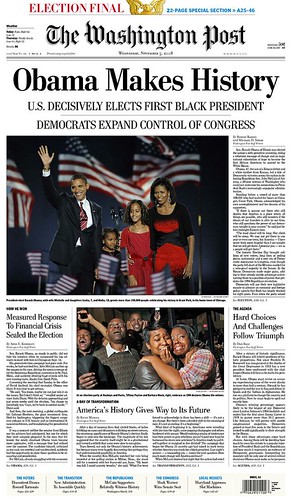![]()
![]()
I have been thinking about the election in November, and feeling disgruntled with the Electoral College system. Oregon has a measly seven electoral votes. This is 1.3% of the total electoral votes available. 2.6% of the votes needed to carry the election. Neither candidate gives a rat’s butt about how the voting goes in Oregon. They’re going to concentrate their time and resources on the states that are likely to make a difference—like Florida [27], Michigan[17], and Ohio[20].) We Oregonians might just as well live on the moon. This is a little hard to swallow when you’re feeling as passionately about the outcome of the election as I am.
Setting off to compose this rant, I decided I should go searching for some information about the Electoral College. It’s been a long time since I studied the Constitution, and I was a little hazy on the details. Like whether the Electoral College was part of the original Constitution, or created by amendment. (Turns out it WAS included in the original document, and then was modified some by the 12th Amendment.)
One of the things I felt most frustrated about was that my vote, here in this beautiful but unpopulous state with its 7 electoral votes, doesn’t count as much as say, a vote in California, with its 52. If I went out tomorrow, and signed up every eligible voter in my state, got them to vote overwhelmingly for one candidate or the other, we would STILL only swing that puny 2.6% of the winning vote in either direction. If fifty people showed up to vote in California, whoever won their majority would walk away with a whopping 10% of the total electoral vote...20% of the number needed to win. If every voter in Oregon marked their ballot for one candidate, those fifty voters in California would wield more than seven times the clout that my millions of Oregon voters had. Am I the only voter in a lightly-populated state that feels disenfranchised by the system?
So I did a little internet research. Hooked up to
http://www.fec.gov/pdf/eleccoll.pdf This is a little info/essay on the Electoral College published on the Federal Elections Commission’s website. It gave me the information I wanted, but, of course, not without an editorial slant.First of all I was surprised (pleased) to be reminded that the framers of the constitution had NOT instituted the Electoral College because they thought the everyday voter was too stupid to be trusted with a direct vote for president. It was in fact yet another compromise between the states’ rights/federalization factions, and the rural/urban factions of the young country. It also addressed the problems of centralizing the election in a nation of the sheer SIZE of the United States. Think about it---even the first thirteen states, spanning the eastern seaboard, were an area much bigger than most of the nations of Europe, with only a fraction of the infrastructure of Europe. Our founding fathers were trying to come up with a system that would speak to these issues, AND prevent any one populous area of the country from being the font from which all presidents sprang.
After documenting the history and an overview of the function of the College, the article goes on to put forth arguments in favor and against abolishing it. Can you guess which side came out looking most reasonable? It was an interesting piece of debate…but I’m not sure I swallow it…
This is a line from the official FEC website:
"…the distribution of Electoral votes in the College tends to over-represent people in rural States. [Italics mine.] This is because the number of Electors for each state is determined by the number of members it has in the House (which more or less reflects the State’s population size) plus the number of members it has in the Senate (which is always two regardless of the State’s population). The result is that in 1988, for example, the combined voting age population (3,119,000) of the seven least populous jurisdictions of Alaska, Delaware, the District of Columbia, North Dakota, South Dakota, Vermont and Wyoming carried the same voting strength in the Electoral College (21 Electoral votes) as the 9,614,000 persons of voting age in the State of Florida. Each Floridian’s potential vote, then, carried about one third the weight of a potential vote in the other states listed."
Being a resident of an "over-represented" state, I would use the above fact to support MY argument that we are under-represented. The electoral votes of SEVEN less populous states (jurisdictions) were cancelled out by the electoral votes of ONE more populous one. How exactly does that cause Florida to be under-represented? Again, I would argue that if two hundred voters showed up to the polls in Florida, their 200 votes would carry as much weight as more than 3 million combined votes in seven other states. Looked at from either viewpoint…it’s STILL a malfunction of the Electoral College System. Each vote does not count for one vote. My vote carries a different weight here in Oregon than it would if I lived somewhere else.
![]()
![]()
Hate to do this to you, guys, but this is
To be continued....




















